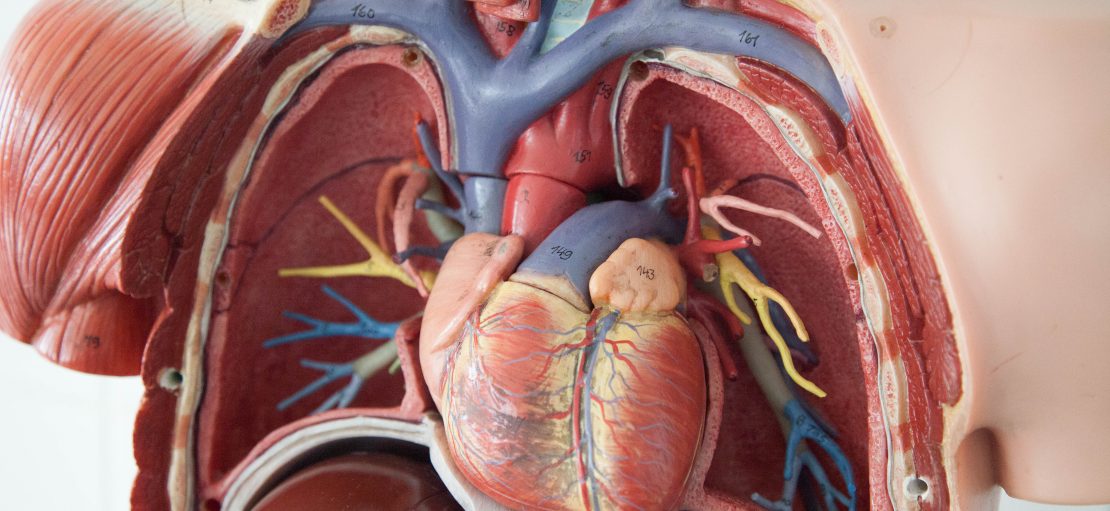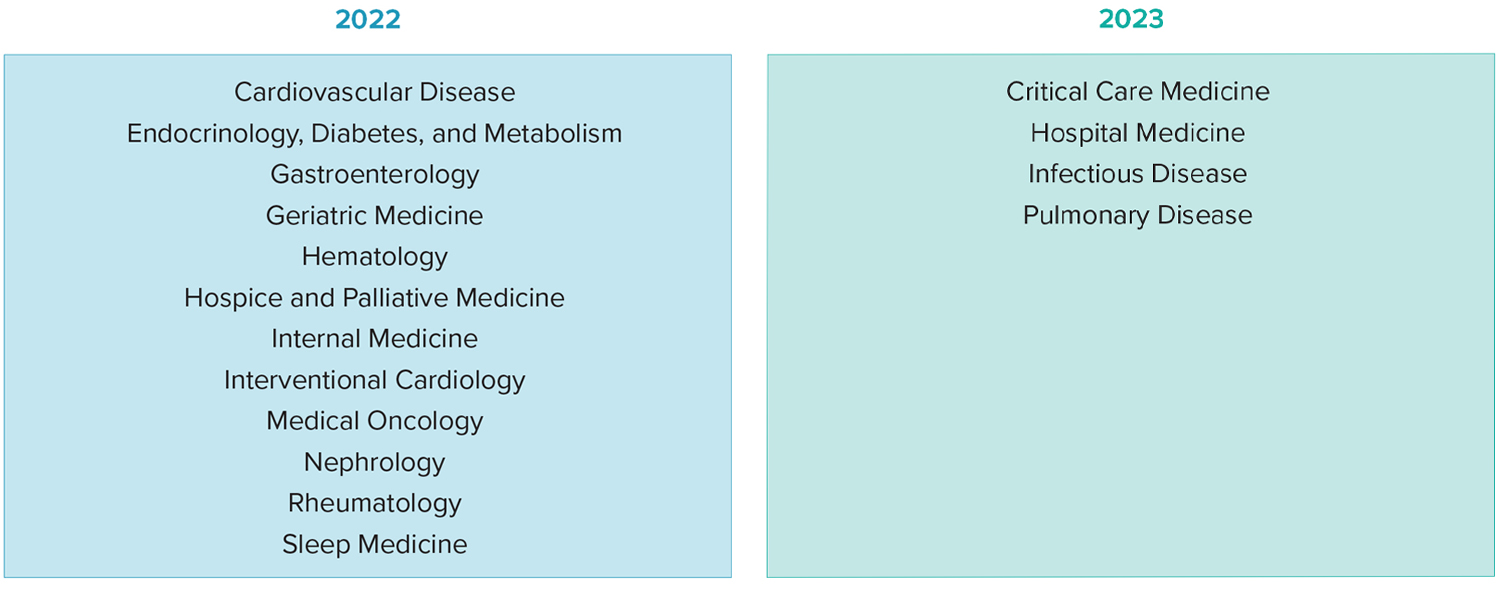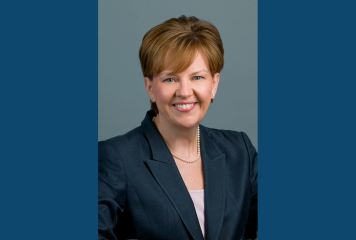Summary Report: Fall 2020 Cardiovascular Board Meeting
February 16, 2021 | Posted by ABIM | Uncategorized
Fall 2020 Meeting
The fall meeting of the Cardiovascular Board came at an extremely important time for ABIM and its diplomates. The ongoing fight against the COVID-19 pandemic has brought many challenges upon the physician community, and it is against this backdrop that ABIM virtually convened the ten members of the Cardiovascular Board to discuss moving the discipline forward.
Below is a recap of the key topics discussed during the meeting:

Leadership Update
Richard J. Baron, MD, ABIM President and CEO, addressed the Cardiovascular Board and commented on recent issues that have arisen in health care due to the pandemic, including the disparities in COVID-19 infection and mortality rates in Black and Brown communities. He reiterated the important role ABIM and the ABIM Foundation play in addressing these issues, calling forth the organization’s joint Statement on Racial Justice issued over the summer and new initiatives to make this vision a reality, including a grant program to build trust and equity in internal medicine training. He also noted the increasing mistrust in medicine and institutions occurring broadly across swaths of society, and that ABIM Board Certification may be more meaningful now than ever, as it serves as a demonstration of knowledge and professionalism upon which patients rely.
He then highlighted key ABIM policy decisions that were made in 2020 to offer physicians more flexibility in maintaining their certification in response to the pandemic:
- No one lost certification if they weren’t able to complete a Maintenance of Certification (MOC) requirement in 2020.
- Physicians that had an assessment, attestation or points due in 2020 will have until 12/31/21 to complete them.
- Physicians whose grace year was 2020 have been afforded an additional grace year in 2021.
Dr. Baron also provided an update on progress in developing a longitudinal assessment, scheduled to launch in Cardiovascular Disease in 2022.
While the new longitudinal assessment will better integrate education with assessment, Dr. Baron noted that it is still an assessment, and that a summative pass/fail judgement will be made at the end of a five-year cycle. More information about the longitudinal assessment can be found later in the Specialty Board meeting summary.
ABMS COCERT Notice of Request for New Certification in the Subspecialty of Adult Cardiac Anesthesiology
The American Board of Anesthesiology (ABA) seeks to create a new certification for anesthesiologists in the subspecialty of Adult Cardiac Anesthesiology. An application was submitted to the American Board of Medical Specialties’ Committee on Certification (ABMS COCERT) and it was made available for public comment this winter. According to the ABA’s application, “the subspecialty of Adult Cardiac Anesthesiology has developed because of the unique physiologic challenges, technologic developments, and collaborative approaches in patient care with surgeons, cardiologists and other proceduralists, together required for successful outcomes and continuing process improvement.” ABA asserts that “subspecialty certification would improve standardization of curricula and consistency of cardiac anesthesiology fellowship training, and result in better definition of the cardiac anesthesiology scope of practice.”
Specialty Board members were generally supportive of ABA’s proposal. The ABA’s application will be reviewed at the March 8 ABMS COCERT meeting, with decision by the ABMS Board of Directors to follow.
Longitudinal Assessment Update
The Cardiovascular Board dedicated a session to discussing progress on the longitudinal assessment, scheduled to become available in Cardiovascular Disease in 2022. See below for the full rollout schedule:
It is important to note there will not be a longitudinal assessment in the highly specialized disciplines of Adult Congenital Heart Disease (ACHD), Advanced Heart Failure and Transplant Cardiology (AHFTC) and Clinical Cardiac Electrophysiology (CCEP). This is because the longitudinal pathway requires substantially more items compared to the traditional, 10-year MOC exam as they are single use, and so there aren’t enough physicians practicing to support its development in those highly specialized disciplines. CCEP will also be reevaluated for a longitudinal option in the future.
The ABIM/ACC Collaborative Maintenance Pathway (CMP) will continue to be an option for AHFTC and CCEP, in addition to Cardiovascular Disease and Interventional Cardiology.
Since the longitudinal assessment was first announced in August 2019, ABIM has released many details:
- The longitudinal assessment will have a 5-year cycle and include both a participation requirement and performance standard:
- Participation: Physicians will be offered 120 questions each year.
Because ABIM understands that physicians have times when professional or personal responsibilities are especially demanding, they can take a break from the longitudinal assessment—skipping up to 100 questions over the course of each 5-year cycle—without penalty. This amounts to a total of 500 required questions over 5 years.
- Performance: Feedback relative to the standard will be provided over the course of the 5-year cycle, and a final passing determination will be calculated at the end of year 5.
- It is a lower-stakes assessment option:
- Physicians cannot lose certification if they do not successfully meet the participation requirement or performance standard for the longitudinal assessment.
- In those instances, they must pass the traditional, 10-year MOC exam the following year to remain certified.
- There are many key features of longitudinal assessment that differentiate it from ABIM’s current assessment options, some of which include:
- The assessment promotes learning by providing immediate feedback, rationales and references for most questions.
- Questions can be answered any place or time, and the platform will be available on mobile phones, tablets, laptops and desktop computers.*
- Physicians will have four minutes to answer each question, along with a yearly bank of 30 extra minutes to access if necessary.
- There is no camera monitoring in use while answering questions; user identity and assessment security is achieved using alternative methods of validation.
*For questions that contain media files with audio, video or still images, the user experience is optimized on a laptop or desktop computer.
As part of the longitudinal assessment update in the Fall 2020 News and Notes that was emailed to all ABIM diplomates in November 2020, Dr. Baron shares a video overview of the new assessment and its features that physicians can look forward to.
Cardiovascular Board members discussed the longitudinal assessment with senior ABIM staff, and shared their thoughts on what has been developed thus far as well as the elements that still need to be formalized. They were especially interested in scoring and how diplomates will be updated regarding their progress relative to the standard. Staff shared that the feedback will be provided along the way utilizing a dashboard where diplomates will be able to identify knowledge gaps. Specialty Board members also learned about research plans being developed by ABIM’s Assessment and Innovations team to evaluate the longitudinal assessment.
Diplomates are encouraged to provide feedback on the longitudinal assessment to help ABIM ensure it will meet their needs.
New proposed ABMS Standards
The American Board of Medical Specialties (ABMS) Standards Task Force was created in July 2019 as a byproduct of the ABMS-sponsored Continuing Board Certification: Vision for the Future Commission (Vision Commission). The group is drafting new standards that incorporate many recommendations of the Vision Commission, and it is anticipated that a draft will be available for public comment in April 2021 or later. The Specialty Board anticipates discussing this topic again at a future meeting once the new ABMS draft standards have been made public.
Reimagining the MOC Point System
ABIM has taken a proactive approach to evaluating its MOC points system, which is aligned with the ABMS requirements for lifelong learning and self-assessment. Currently, ABIM diplomates are required to earn 100 MOC points every five years to maintain their certification, and to earn any amount of points every two years to be listed as “participating in MOC.”
Specialty Board members provided observations about the current MOC points system and whether they thought it helped cardiologists stay current in knowledge and practice. They also discussed knowledge areas and skills that could be better recognized in the current MOC system, or by new activities created by external partners (e.g. professional societies, healthcare systems, medical schools). This topic will be explored in 2021 by ABIM Council and the ABIM Board of Directors.
Enhancing the Connection between ABIM Governance and the Physician Community
ABIM Governance includes a diverse and talented group of over 350 members across more than 50 boards and committees. They are critical to helping ABIM achieve its mission to enhance the quality of health care by certifying internists and subspecialists who demonstrate the knowledge, skills and attitudes essential for excellent patient care. One of the ways they do this is by being connected to the community: sharing updates, having conversations with colleagues and collecting feedback.
During this session, members discussed ways to effectively communicate with the community and some shared their firsthand experiences. They spoke of simple engagement such as initiating a conversation with colleagues to garner feedback on longitudinal assessment, or more in-depth activities such as writing articles, making presentations or recording videos to better connect with fellow physicians on a personal level.
Discussion of Future Specialty Board Membership
The Cardiovascular Board received many outstanding candidates for Specialty Board membership and dedicated significant time to discussing their qualifications. Throughout this process, special care was given to ensure that new members enhance the group’s diversity in terms of age, gender, race/ethnicity, geographic location and practice type.
Specialty Board members are ultimately chosen by the ABIM Council, who have oversight of Specialty Board composition across ABIM disciplines. Selected candidates will join the Specialty Board as of July 1, 2021.
In Closing
The Cardiovascular Board welcomes feedback and commentary from diplomates, society partners and the greater medical community.
Do you have any questions? Are you interested in how to get involved?
If you have questions after reading this report, please connect with us through the following channels:
- Subscribe to the ABIM blog.
- Call:1-800-441-ABIM (2246)
- Email: request@abim.org.
- Join our Governance to help guide our future direction.
- Join our Community Insights Network to share your feedback.
- Share your feedback on the new longitudinal assessment.




